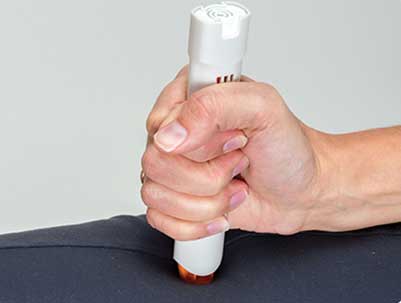This course is applicable to a range of settings where emergencies involving allergic reactions may occur. It is relevant for people working in childcare, education, aged and community care, sport, tourism, hospitality, industry enterprises and other environments.
The course covers First Aid management of anaphylaxis as well as risk minimisation and risk management strategies for anaphylaxis.

Please Note: Our Rowville location is not wheelchair accessible and our training rooms are located up stairs
For further information about this course or onsite training quotes please call 1300 975 889.
Please view the Critical Info on the students page prior to booking.
🎉 5BUCK FEB DEAL – Bring a friend for just $5 when you book a course in February!
💰 10% PRICE BEAT GUARANTEE – Find a cheaper price? We’ll beat it by 10%!
This deal can only be redeemed by phone!
Disclaimer: Only applicable to public bookings made by phone for courses listed on livcor.com.au with February course dates. This promotion does not apply to group bookings or corporate courses. 🚨 Limited spots available.
This course covers the skills and knowledge required to confine small emergencies in a facility. It includes preparing for emergency situations, identifying and assessing an emergency, safely confining workplace emergencies, using initial response equipment and reporting on the facility's emergency response. Small emergencies in a facility include incidents such as small fires that can be controlled using a fire extinguisher; chemical spills that can be controlled using facility personal protective clothing and equipment and a spill kit; or a vehicle accident where there is no significant injury or damage.
This Nationally Recognised CPR course teaches the skills and knowledge required to perform CPR in line with the Australian Resuscitation Council (ARC) guidelines. It applies to all persons who may be required or would like to be skilled to provide CPR in a workplace, community or their own home.
This course covers the skills and knowledge required to minimise further injury to a casualty when applying first aid and waiting for emergency medical aid. It includes recognition and management of a suspected spinal injury, immobilising cervical spine, evaluating the need to move a casualty, preparing a casualty for transport, transporting and monitoring a casualty, and performing a casualty handover.
This course applies to a wide range of settings where emergencies involving asthma and anaphylaxis episodes may occur. It is relevant for teachers, childcare workers, aged-care workers, disability workers, sports coaches, youth workers and designated workplace first aiders.
This course outlines the skills and knowledge required to provide a first aid response to a casualty in a remote or isolated site over an extended period of time until medical assistance is provided, or evacuation occurs. This unit applies to any site where medical assistance is likely to be delayed.
This online program will increase your awareness and understanding of mental health issues. It will also help you recognise some of the signs of different mental health issues and guide you on how to respond appropriately.